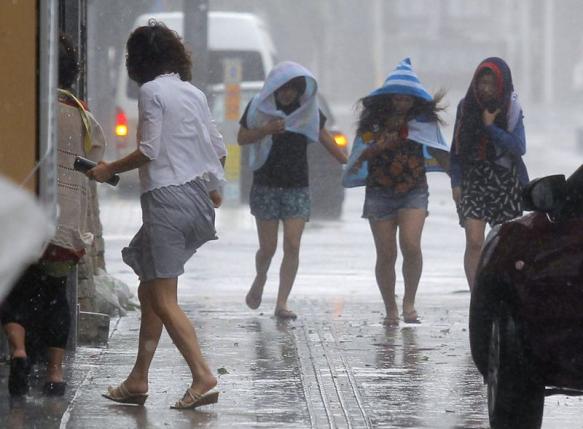Typhoon Nangka barrelled across the western end of Japan's largest main island on Friday, snarling transport, leaving at least two men dead and prompting authorities to advise nearly 100,000 people to evacuate.
Rivers burst their banks in the western prefecture of Wakayama after some parts of Honshu, Japan's largest main island, received more than 600 mm (23 inches) of rain since the storm began to near on Thursday.
Two men drowned, one of them a 71-year-old man who fell into a flooded ditch while repairing a window, NHK national television said. Some 35 people were injured.
Nangka, named for a tropical fruit, had been downgraded to a tropical storm by Friday morning but still packed sustained winds of 80 kph (51 mph), with gusts of up to 120 kph(75 mph) an hour. It was expected to dump a further 300 mm (11 inches) of rain on parts of Japan by Saturday morning.
Authorities advised nearly 100,000 people to evacuate across a wide swathe of western Japan due to the threat of flooding and landslides. At one point on Thursday, nearly 400,000 people were advised to leave their homes.
Some 165 flights were cancelled, trains in western Japan suffered delays and highways near the ocean were closed.
The storm is expected to head into the Sea of Japan later on Friday and weaken into a tropical depression, then head northeast across the northern tip of Honshu on Sunday.























































